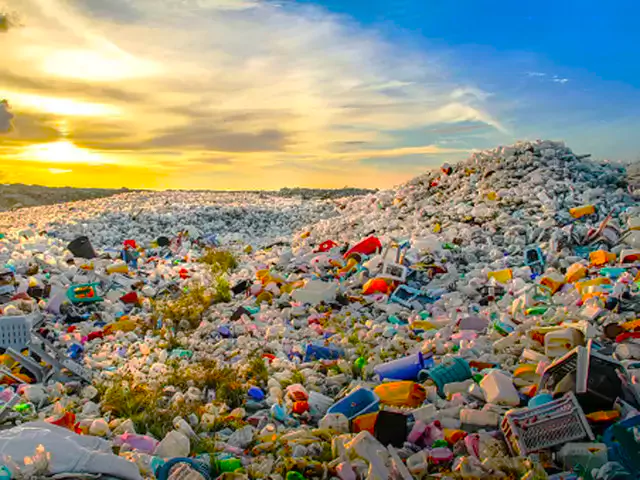Context
Recently, Global leaders gathered (from 23 April-29 April 2024) in Ottawa, Canada for the 4th Session of Intergovernmental Negotiating Committee (INC) to discuss progress in drafting a first-ever global plastic treaty.
- At the 4th Session of INC, around 3,500 people registered to attend including lobbyists, business leaders, lawmakers, scientists and environmental non-profits.
UN Global Plastic Pollution Treaty

- About the treaty: At the U.N. Environmental Assembly in 2022, the world’s nations agreed to develop a legally binding agreement by the end of 2024 to address the world’s plastic pollution crisis.
- The Treaty is meant to address plastics through their entire lifecycle from when they are produced, to how they are used and then disposed of.
- It will be defining what measures to take, how and when to implement them.
- Working of INC: The INC began its work during the second half of 2022, aiming to complete the negotiations by the end of 2024.
- First session of the INC (INC-1): Punta del Este, Uruguay from 28 November to 2 December 2022.
- Second session (INC-2): Paris, France from 29 May to 2 June 2023.
- Third session (INC-3): Nairobi, Kenya from 13 to 19 November 2023.
- Fourth session (INC-4): Ottawa, Canada from 23rd to 29 April 2024.
- Fifth session (INC-5): Scheduled to take place at Busan, Republic of Korea from 25th November to 1st December 2024.
Enroll now for UPSC Online Course
Plastic Waste Concern
- Plastic waste has become a global menace polluting landscapes and waterways, producing plastics involves releasing greenhouse gas emissions.
- The plastic industry now accounts for 5% of global carbon emissions, which could grow to 20% by 2050.
- Plastic production is on track to triple by 2060 – unless the treaty sets production limits, as some have proposed.
- Most virgin plastic is derived from petroleum.
Potential Challenges & Consensus in the Meeting
With Respect to restrictions and phase-outs, reuse policies, product design requirements, extended producer responsibility, and waste management etc
- Regarding Production Limits : Many plastic and petrochemical-producing countries including Saudi Arabia, Iran and China have opposed mentioning production limits.
- Regarding Phase Outs : A group of 60 nations wants to end plastic pollution by 2040. They are called the “High-Ambition Coalition.” (The group includes European Union countries, island nations, Japan, and the United Arab Emirates.)
- Petrochemical Industry on Recycling & Technology Use : They said that production caps would lead to higher prices for consumers, and that the treaty should address plastics only after they are made.
- They want to focus on encouraging the reuse or recycling of plastics, including deploying technology that can turn plastic into fuel.
- About chemicals used in production :They said companies should be allowed to disclose those chemicals voluntarily.
- Corporate Brands Company : More than 200 consumer-facing companies including Unilever, PepsiCo and Walmart have joined the so-called Business Coalition for a Plastics Treaty.
- Like the petrochemical industry, these companies that rely on plastic packaging for their products have been a major presence in the plastics negotiations.
- However they support the Negotiating Treaty.
Conclusion
To rein in soaring plastic pollution by the end of the year. It could be the most significant deal relating to climate-warming emissions and environmental protection since the 2015 Paris Agreement, which got 195 parties to agree to keep global temperatures from rising beyond 1.5C.
Also Read: India’s Single Use Plastic Crisis
![]() 24 Apr 2024
24 Apr 2024
